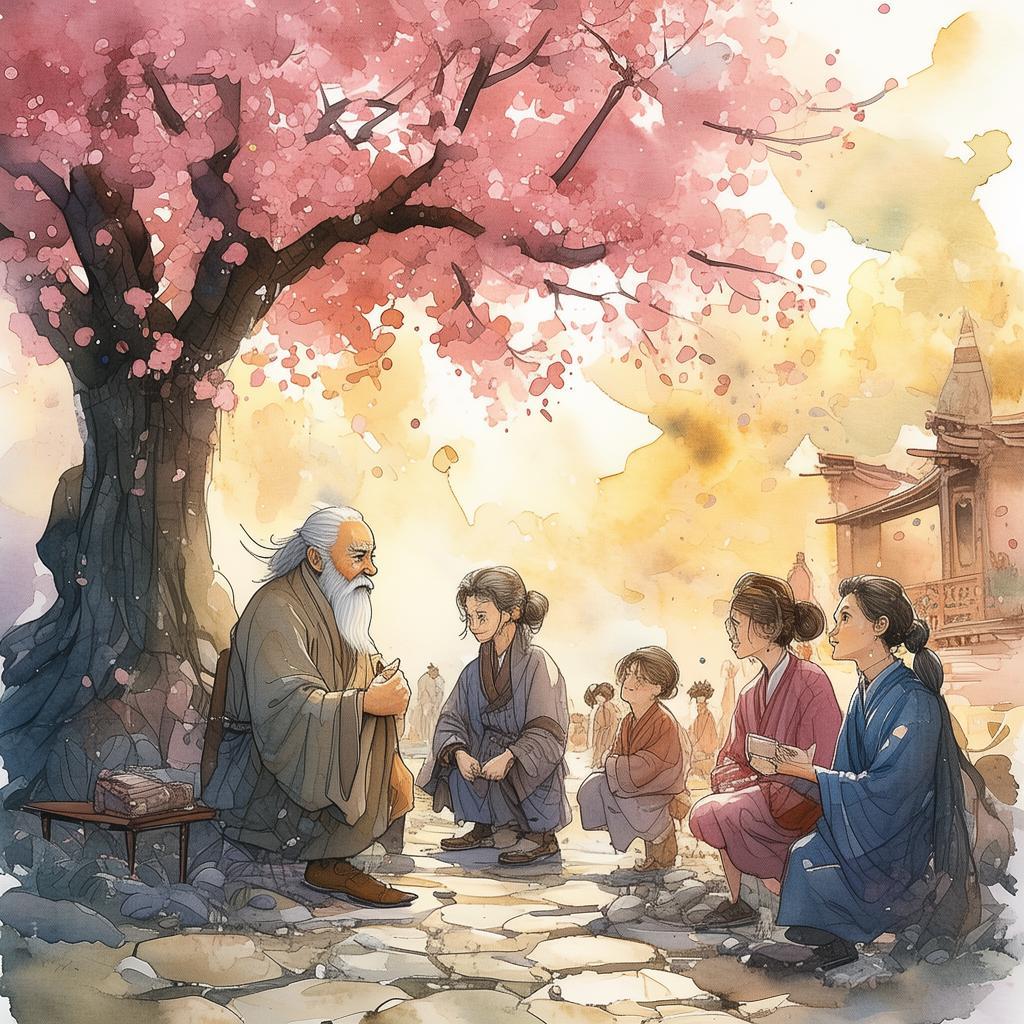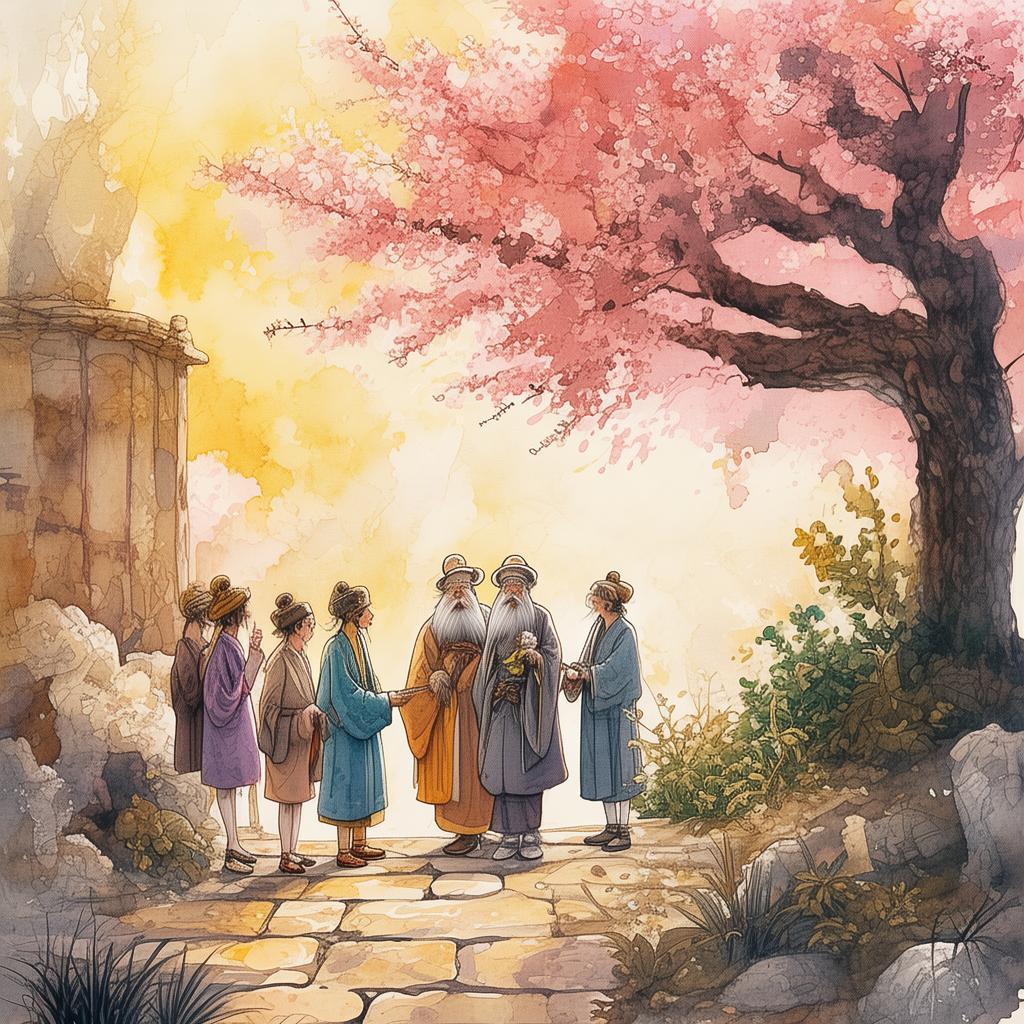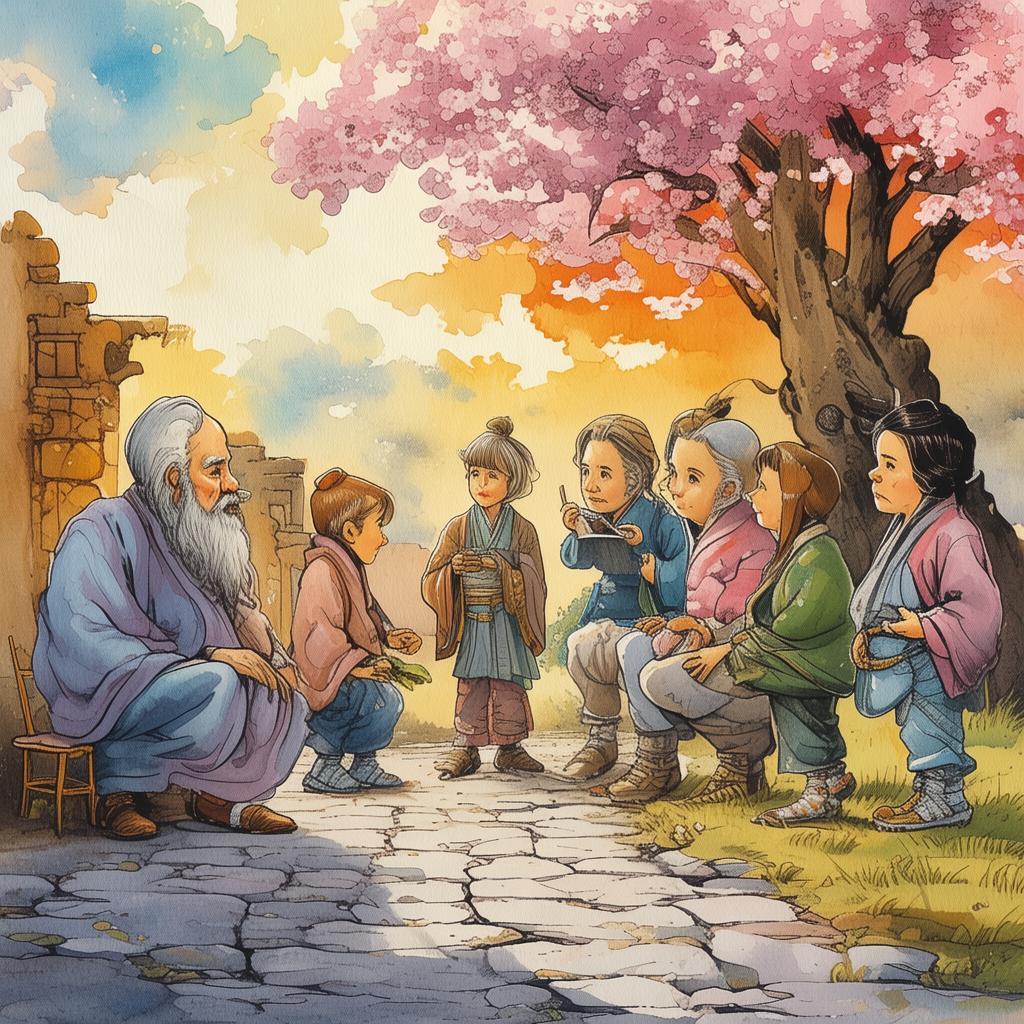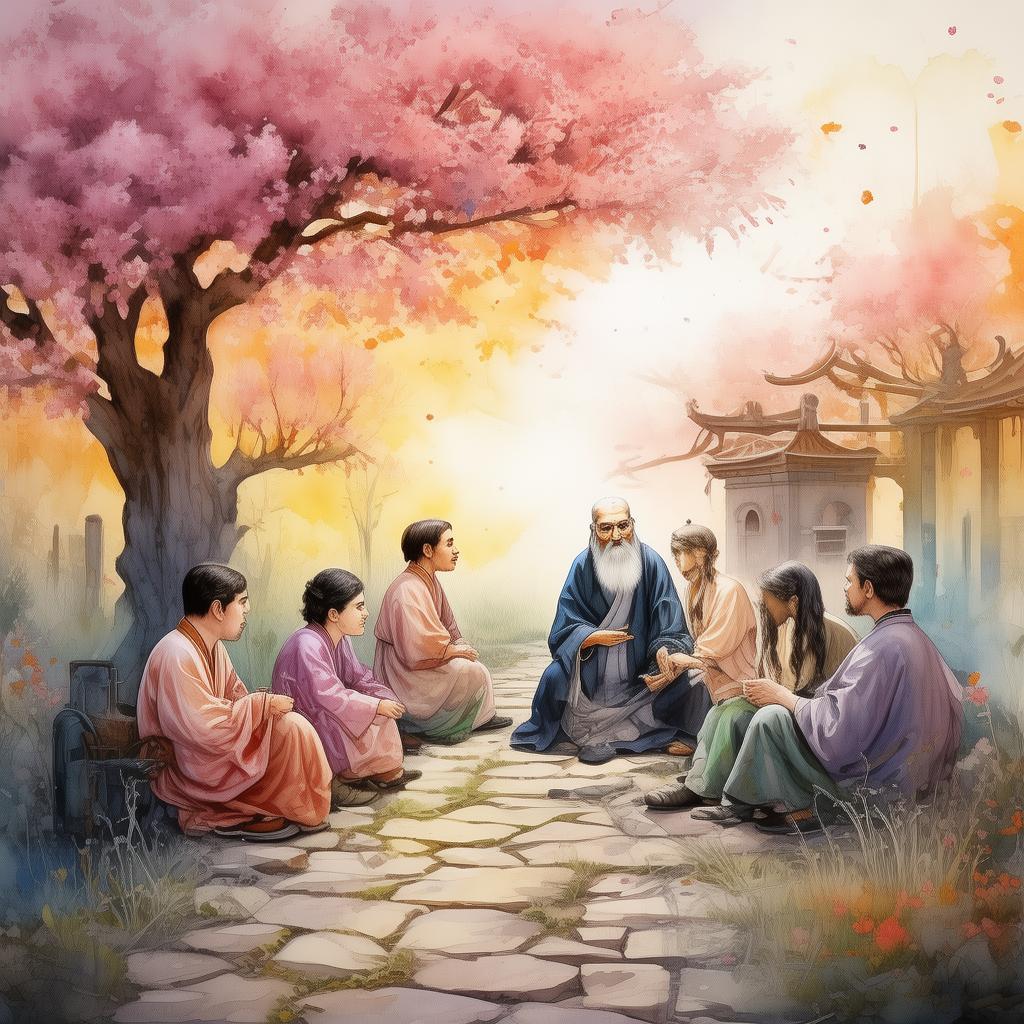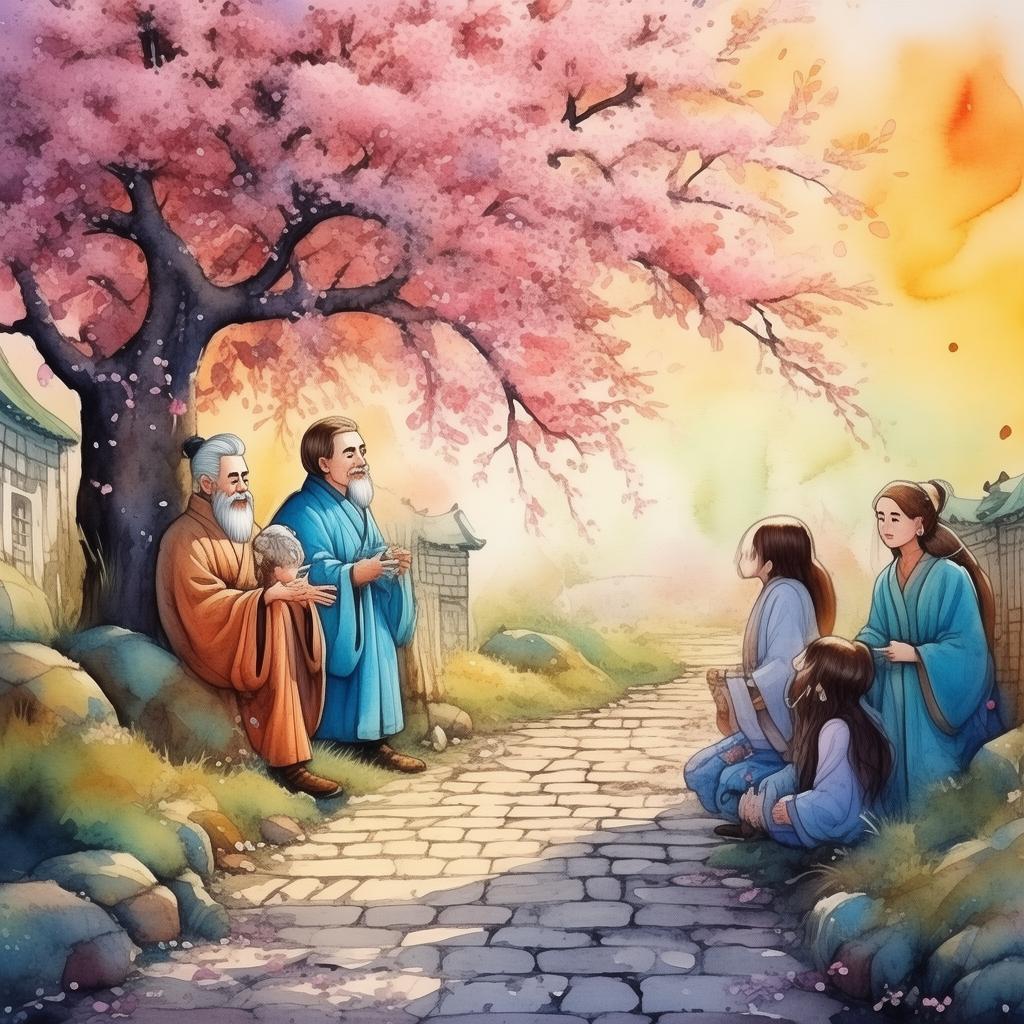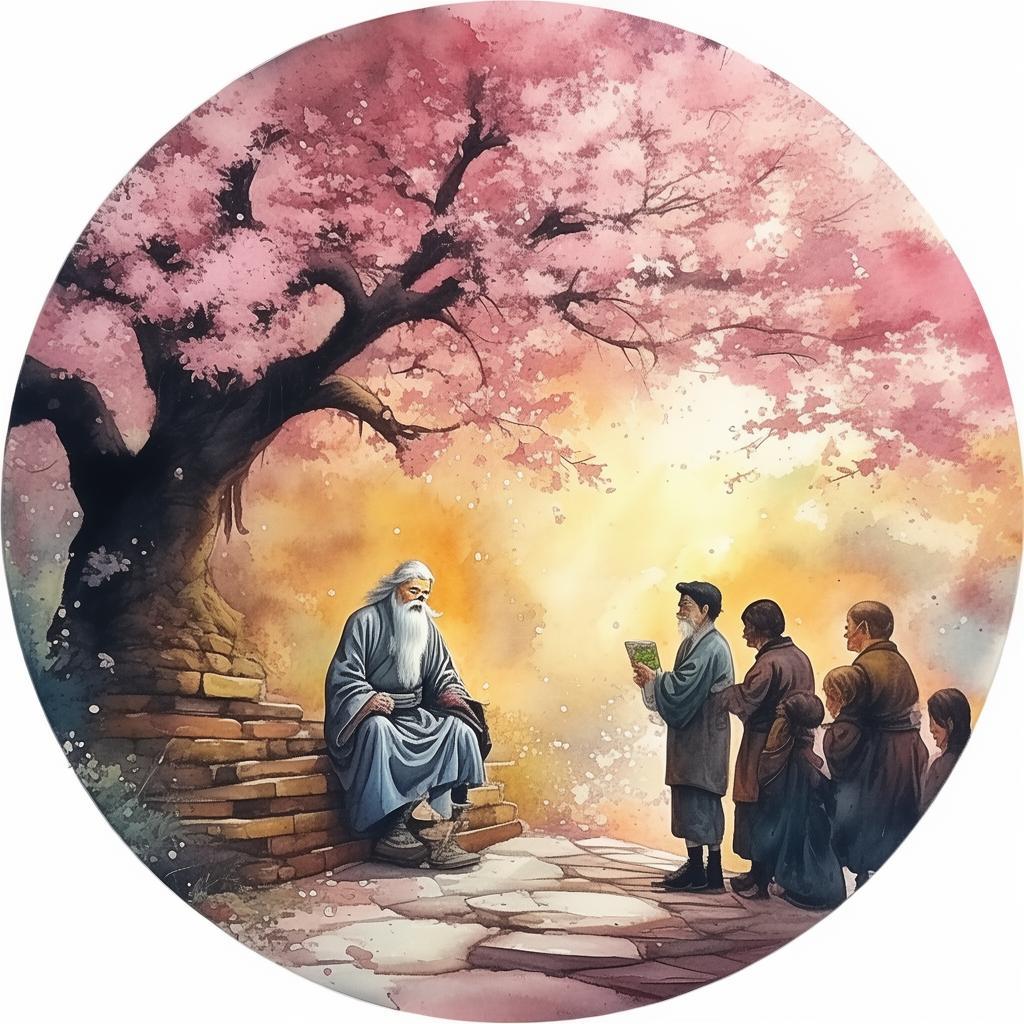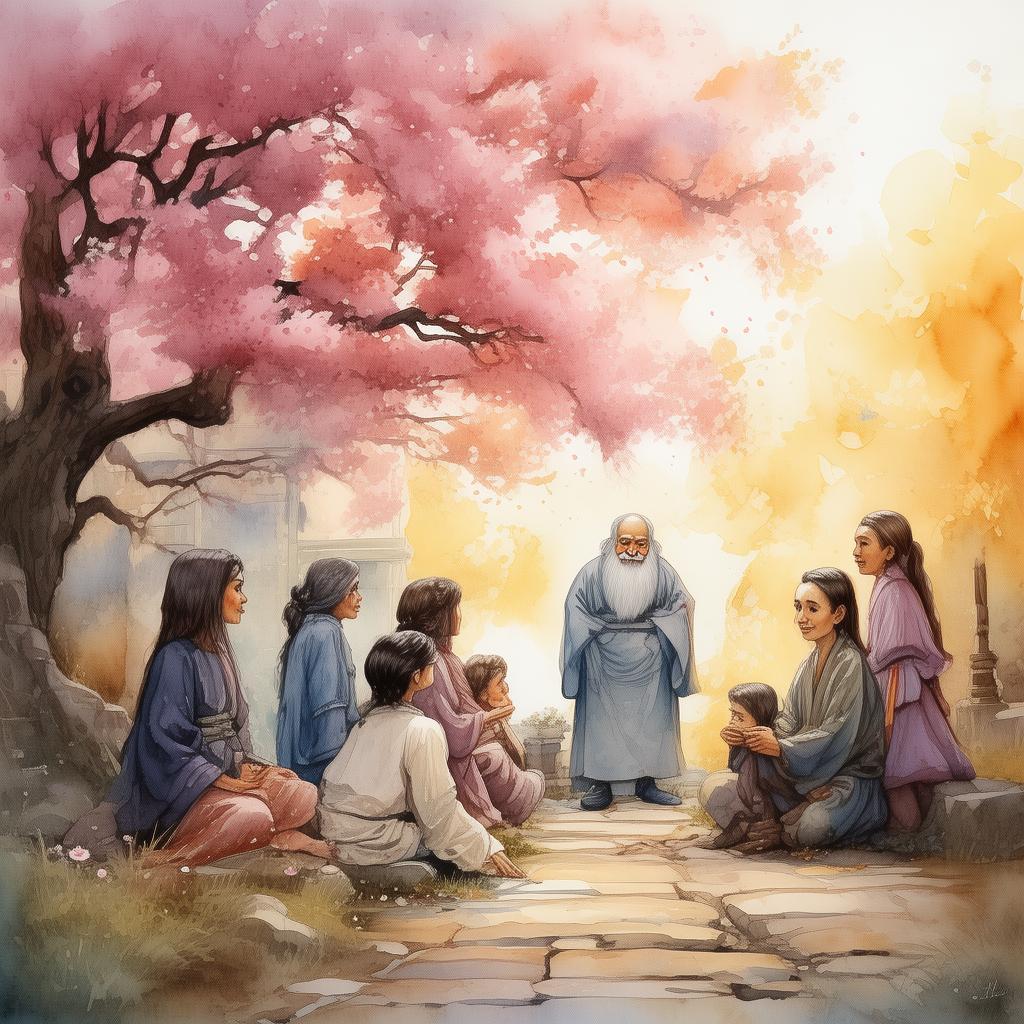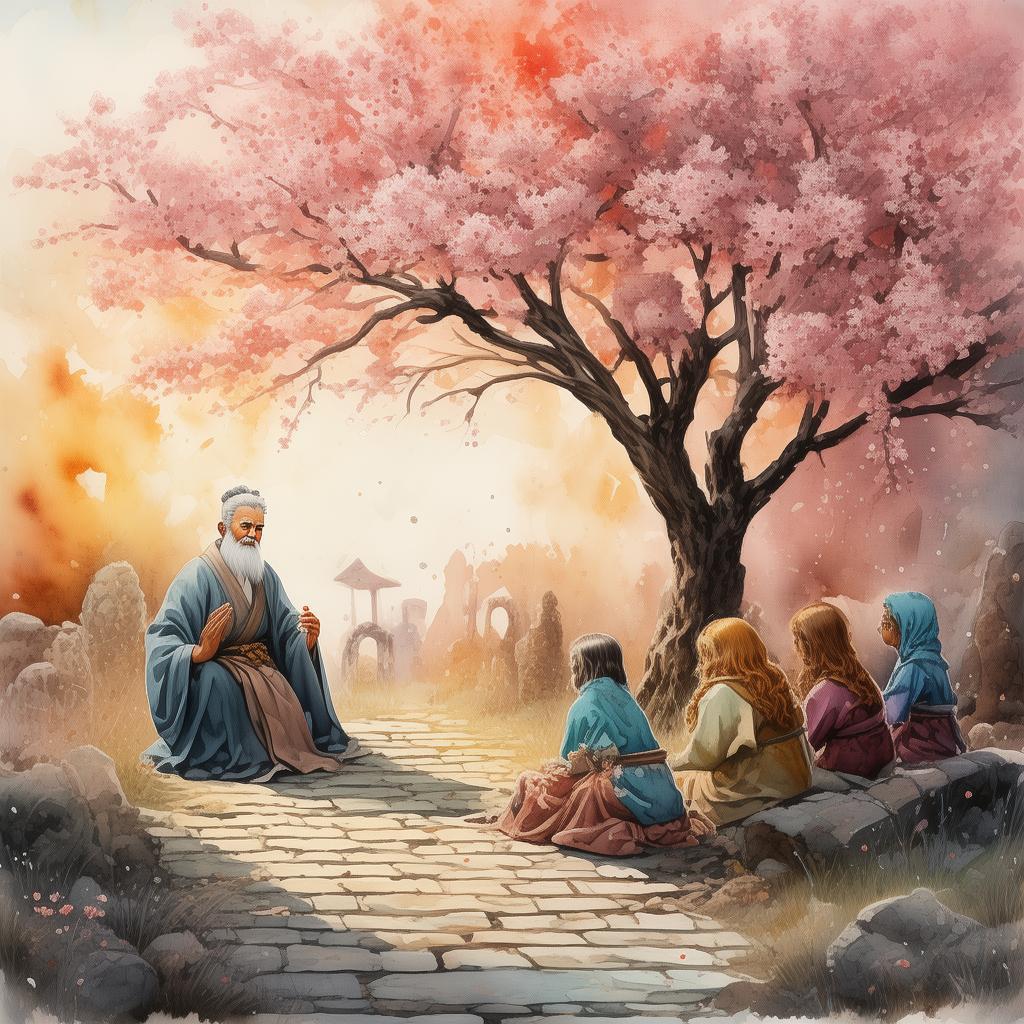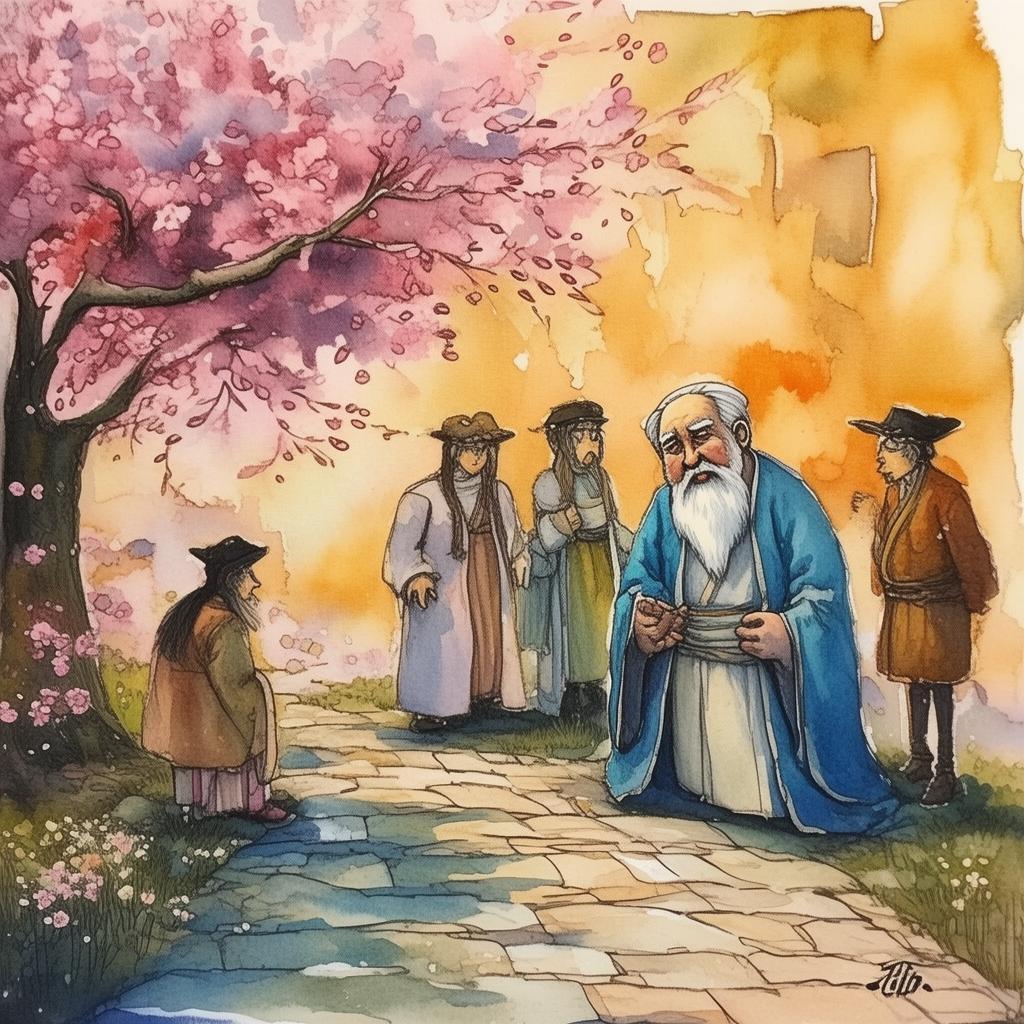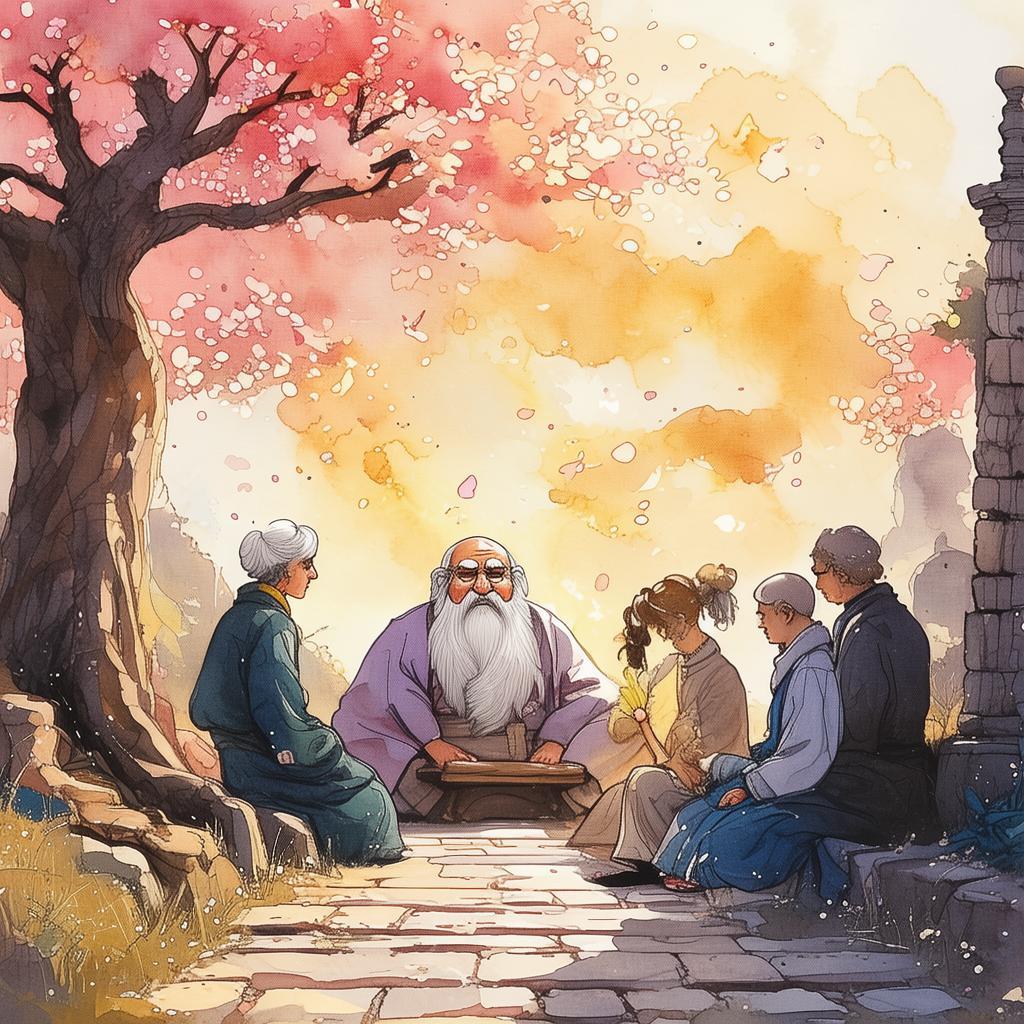Wine of Solitude: The Lament of Xiao Qian
In the misty valleys of Guangxi, where the terraced rice fields stretch as far as the eye can see, there lay a village that time seemed to forget. Among its inhabitants was Xiao Qian, a man whose life was as monotonous as the river that wound through the village. His days were spent tending to his fields, and his nights were a solace he sought in the amber depths of a glass of local wine.
The village, a quaint cluster of earthen homes, was shrouded in an aura of tranquility. The villagers were kind and gentle, yet their lives were as bound by tradition as Xiao Qian's. They followed the rhythm of the seasons, the cycles of life, and the customs that had been passed down through generations. Among these customs was the drinking of wine, a ritual to honor the ancestors, celebrate festivals, and cope with the trials of life.
Xiao Qian, however, found himself drinking alone. His heart, heavy with a sorrow that no amount of wine could assuage, beat in rhythm with the endless cycle of emptiness. He was the only son of his parents, and their hopes were pinned on him. Yet, life had dealt him a harsh hand. His parents had died young, leaving him with no family ties other than a distant cousin, who lived a life of his own, far from the confines of the village.
As the years passed, Xiao Qian's sorrow grew into a deep well of despair. The wine, once a celebration of life, now became a ritual of self-torture. He would pour himself a glass, take a sip, and let the liquid burn a path to his heart. The drink was his solace, his pain, his world.
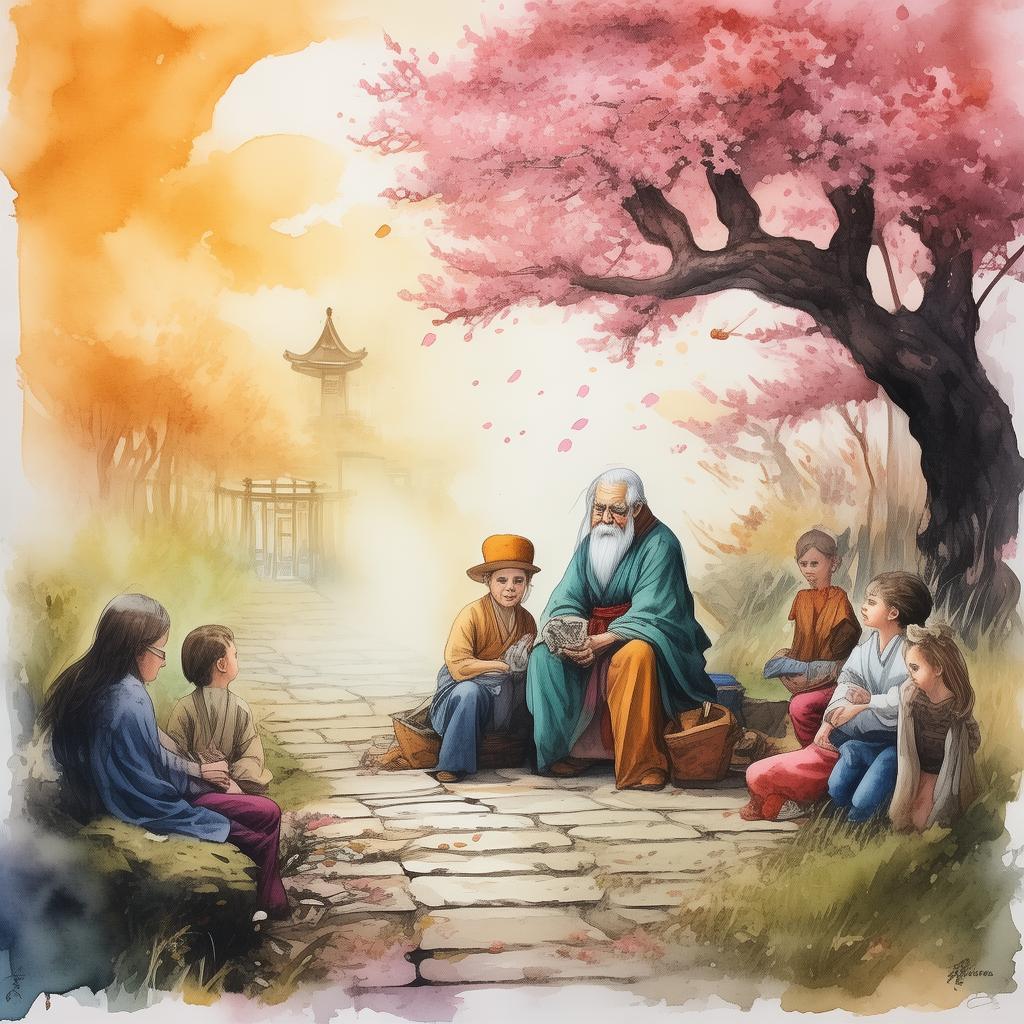
One evening, as the sun dipped below the horizon, casting a golden glow over the rice terraces, Xiao Qian sat on the veranda of his earthen home. He reached for the bottle, the weight of the glass felt like a boulder in his hand. As he raised it to his lips, he saw the reflection of the village in the wine—a quaint cluster of homes, the river flowing gently, and the mountains in the distance.
But something was different this time. The village seemed to hold its breath, as if waiting for a word from him. He took another sip, and the taste was unfamiliar, bitter, yet sweet. The world around him began to change, the colors intensifying, the sounds louder. He saw the villagers, their faces twisted in a mix of fear and concern, their eyes fixed on him.
"Xiao Qian, why do you drink so much?" a voice echoed through the village. It was the voice of his mother, gentle yet filled with pain.
"Because I can't bear the silence," he whispered, the words trembling in his voice.
The villagers, who had been standing silently, began to murmur among themselves. They moved closer, their eyes wide with a mix of horror and understanding.
"Xiao Qian, we see you. We feel your pain," said the village elder, a man whose eyes held the wisdom of many seasons.
Xiao Qian's heart ached. He realized that he had become the specter of despair, the ghost that haunted the village. The bottle in his hand trembled, and he set it down. The taste of the wine had changed, and so had his resolve.
That night, as the moon rose and cast its silver glow over the village, Xiao Qian made a vow. He would not drink again. He would face his solitude, his pain, and his despair with the courage that his ancestors had given him.
The next morning, as the sun's first rays painted the sky with hues of orange and pink, Xiao Qian stepped out of his home. He saw the villagers, their eyes filled with hope, and he knew that he had to change. He would plant new seeds, nurture the fields, and cultivate his heart.
And so, Xiao Qian's journey began. It was a path lined with the thorns of sorrow and the flowers of resilience. The village watched, their hearts heavy with concern but hopeful for his future. And Xiao Qian, with every step he took, knew that the cycle of despair could be broken, one sip at a time.
In the end, the village elder summed up Xiao Qian's transformation with a phrase that echoed through the years: "Wine of Solitude, indeed, but the strength of a man is found in breaking the chains that bind him."
The Guangxi Drinkers' Lament, "A Glass of Despair," became a tale not of sorrow, but of redemption and the indomitable spirit of the human heart. Xiao Qian's story was a whisper that traveled through the land, a testament to the power of hope in the face of despair.
✨ Original Statement ✨
All articles published on this website (including but not limited to text, images, videos, and other content) are original or authorized for reposting and are protected by relevant laws. Without the explicit written permission of this website, no individual or organization may copy, modify, repost, or use the content for commercial purposes.
If you need to quote or cooperate, please contact this site for authorization. We reserve the right to pursue legal responsibility for any unauthorized use.
Hereby declared.
